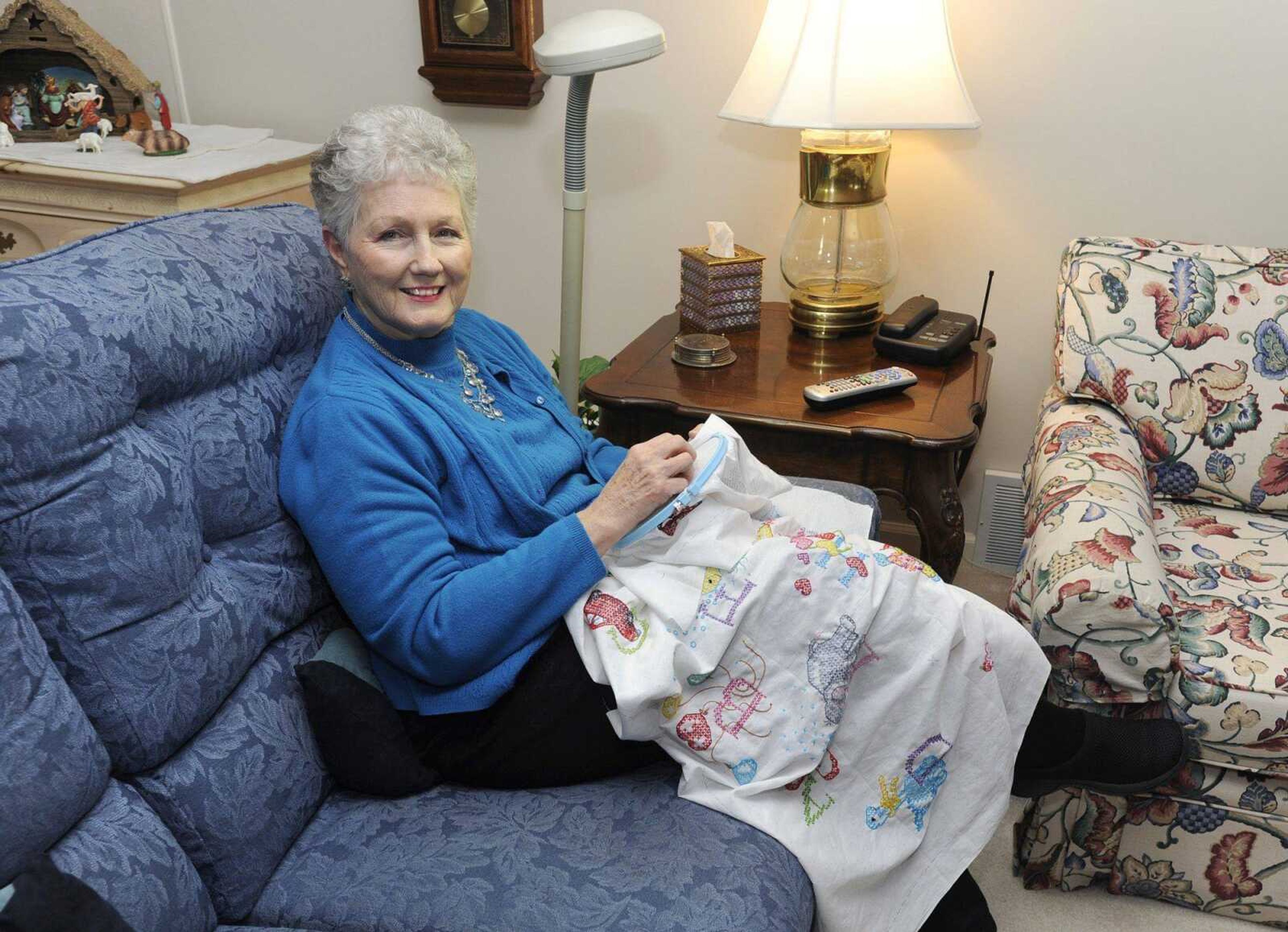Downsizing your home with ease
Your kids have grown up and moved out, and you and your spouse are feeling like you have more house than you need. Should you consider downsizing? Glenda Quinn, owner of Smooth Moves by Glenda, a Cape Girardeau company that assists seniors in the relocating process, recommends that the first thing you should do is sit down with your accountant, spouse or a trusted family member and decide what you can afford...
Your kids have grown up and moved out, and you and your spouse are feeling like you have more house than you need. Should you consider downsizing?
Glenda Quinn, owner of Smooth Moves by Glenda, a Cape Girardeau company that assists seniors in the relocating process, recommends that the first thing you should do is sit down with your accountant, spouse or a trusted family member and decide what you can afford.
"A lot of times senior adults end up figuring out that they can afford more than they think they can," says Quinn.
After you have arrived at what you can afford, various housing options are available, from free-standing homes to duplexes and condominiums to apartments. Both renting and owning are usually options in most housing categories.
Another option for many seniors is moving to a retirement community.

"At Saxony Village, we offer everything from a one-bedroom, one-bath apartment to a 2,600-square-foot duplex complete with basement and garage," says Scott Sprandel, manager of Saxony Village, a retirement community in Cape Girardeau.
"Also," says Sprandel, "Since the downward turn of the economy, there is no longer a long waiting list to get into a most retirement communities in our area like there used to be."
When choosing a new, smaller place to live, senior adults might want to consider the proximity of the new location to their adult children as well as to places they frequent such as banks, grocery stores, doctors' offices and churches. Seniors should also look into the safety of the neighborhood that they are considering.
"In meeting and talking with prospective residents interested in moving into a retirement community such as Chateau Girardeau, I have found that seniors are looking more toward a maintenance-free lifestyle ... that includes a social environment, transportation availability, health care availability, convenient access to amenities such as shopping, the arts, medical facilities, recreation, etc.," says Gayle Gorham, marketing director of Chateau Girardeau.
Living in a neighborhood where other senior adults live can also be a huge plus.
"The main benefits of downsizing to a smaller home can be less upkeep and maintenance, less cleaning and less overall cost," says Terri Penrod, broker/manager of Realty Executives of Cape County.
"Most senior adults want the same upscale amenities that they had in their larger home such as a nice kitchen, wood floors and granite countertops," says Penrod. "They just want those amenities in a smaller home."
When deciding what to take with you and what to get rid of when you are moving to a smaller home, most agree that family heirlooms, antiques and keepsakes should be tops on the list to keep.
"A lot of people choose to get rid of their duplicates when they downsize," says Penrod. For example, your larger home may have had two or three furniture-filled areas for entertaining, such as a living room, family room, and/or recreation area. Your smaller home may only have one area for entertaining. In addition, your smaller home may only have one eating area, whereas your larger home had a dining room as well as an eat-in kitchen.
Other items to consider getting rid of when downsizing are pieces of furniture that may have worked great in a larger home, but now look too big or out of proportion in a smaller home.
"When thinning out your furniture for a move, most people have an estate sale or downsizing sale," says Penrod.
Quinn agrees, pointing out that some people use an auction company if selling a large quantity of items.
Other ways to get rid of the furniture you are not moving is to give it away to family members or friends, or donate it to a local charity. Most donations will count as a tax deduction, so be sure to ask for a receipt from the charity. Some charitable organizations will even offer pick-up and haul-away service for large pieces of donated furniture and bedding.
"Homeowners from their mid 50s on up are sometimes choosing to downsize," says Penrod.
Connect with the Southeast Missourian Newsroom:
For corrections to this story or other insights for the editor, click here. To submit a letter to the editor, click here. To learn about the Southeast Missourian’s AI Policy, click here.










